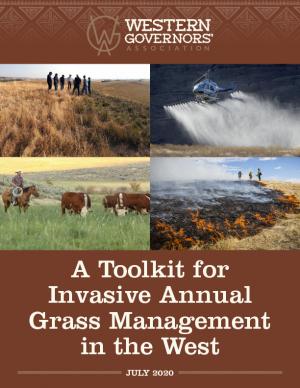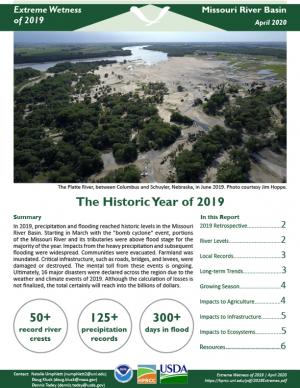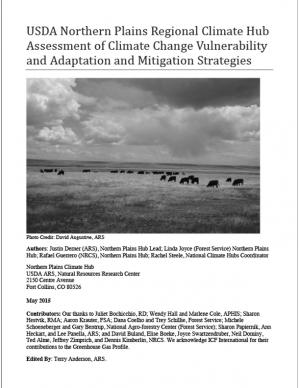Access a range of climate-related reports issued by government agencies and scientific organizations. Browse the reports listed below, or filter by scope, content, or focus in the boxes above. To expand your results, click the Clear Filters link.
The Western Governors’ Association and the U.S. Department of Agriculture are pursuing an effort to meaningfully address the large-scale infestation of invasive annual grasses on western forests and rangelands. One product of this effort is this toolkit for land managers working to combat the spread of invasive annual grasses in the West. The toolkit is comprised of a roadmap for invasive grass management, with new best management practices; case studies highlighting the application of these practices in Idaho and Wyoming; and a new geospatial data layer (which uses analytical tools to compile existing federal data) to help state and local managers assess invasive annual grasses within their jurisdictions while also offering opportunities to identify new cross-boundary collaborative projects. The roadmap and data layer are designed for easy integration into local management plans and can be tailored by state and local managers to reflect local data, knowledge, capacities, and priorities.
The heavy precipitation and flooding of 2019 was one for the history books. This report looks back at the major climate events and impacts of 2019 in the Missouri River Basin.
The Northern Plains has experienced increased weather variability and climatic changes throughout the 20th and early 21st centuries. This assessment presents observed changes, such as increased length of frost-free seasons, which pose risks and opportunities to agricultural production in the region. The assessment also highlights adaptation practices working land managers might consider to prepare for and respond to changes in climate by adjusting management in ways that harness benefits or reduce anticipated effect.
Find out how hometowns across the United States are building their resilience to climate change. Two women who studied climate change science and policy in graduate school took a three-month road trip to find out what climate change adaptation looks like in the United States. They visited more than 30 communities preparing for climate change and documented what they learned in blogs and through media reports. This report describes six big lessons from the ongoing adaptation work they saw across the country.
Western Water Assessment, in collaboration with the University of Colorado Boulder and Colorado State University, conducted a broad study of climate vulnerability for the state of Colorado. Drawing from existing data and peer-reviewed research, the study summarizes the key challenges facing seven sectors: ecosystems, water, agriculture, energy, transportation, outdoor recreation and tourism, and public health.
As the climate changes, critical challenges face water managers, farmers, public agencies, and conservationists in the Colorado River Basin. This report by Carpe Diem West, in partnership with the Center for Natural Resources and Environmental Policy at the University of Montana, documents the concerns of some Colorado River thought leaders and their ideas about potential solutions and paths ahead.
This plan was developed to provide an effective and systematic means for the State of Colorado to reduce the impacts of water shortages over the short and long term.
A contribution to the 2013 National Climate Assessment, this report is a summary and synthesis of the past, present, and projected future of the Southwest region’s climate. It emphasizes new information and understandings since publication of the previous national assessment in 2009.











